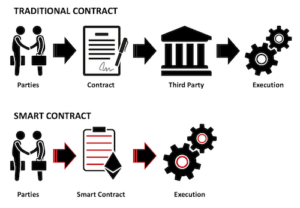CCCam HD Insights
Stay updated with the latest in streaming and tech.
Smart Contract Fairness: Bridging Trust in a Trustless World
Discover how smart contracts are revolutionizing trust in a digital age—uncover fairness in a trustless world! Click to learn more!
Understanding Smart Contract Fairness: Key Principles and Benefits
Understanding Smart Contract Fairness is essential for developers and users alike, as it directly impacts trust and transparency within blockchain ecosystems. Fairness in smart contracts refers to the impartiality of the contract's execution, ensuring that all parties involved are treated equitably. This can be achieved through various mechanisms such as consensus algorithms, thorough auditing processes, and transparent coding practices. By prioritizing fairness, developers can not only enhance user confidence but also minimize potential disputes that may arise from perceived biases or errors.
The benefits of smart contract fairness extend beyond just trust; they also foster innovation and widespread adoption of blockchain technology. When participants are assured of fairness, they are more likely to engage with decentralized applications, leading to increased market participation. Furthermore, robust, fair smart contracts can encourage competitive environments which stimulate creativity and efficiency. In summary, upholding fairness in smart contracts is not only a moral imperative but also a strategic advantage that can drive the growth and sustainability of decentralized systems.

Counter-Strike is a highly popular first-person shooter game that pits two teams against each other: the terrorists and the counter-terrorists. Players can engage in various gameplay modes, including bomb defusal and hostage rescue. For those looking to enhance their gaming experience, using a bc.game promo code can provide exciting bonuses and rewards.
How Smart Contracts Enhance Trust in Decentralized Transactions
Smart contracts are self-executing agreements with the terms of the contract directly written into lines of code. These digital contracts run on blockchain technology, making them immutable and transparent. In a decentralized transaction, trust is often a concern, especially when parties involved do not know each other personally. However, smart contracts enhance trust by eliminating the need for intermediaries, thereby reducing the potential for fraud and manipulation. This trust stems from the code itself, which ensures that contractual obligations are automatically enforced once predefined conditions are met.
Furthermore, the transparency offered by smart contracts allows all parties to verify the contract's execution status in real-time. Each transaction is recorded on the blockchain, creating an auditable trail that can be reviewed by any participant in the network. This feature is crucial for building confidence in decentralized transactions, as it allows users to independently confirm that the terms have been met without relying on third parties. As more individuals and businesses embrace decentralized transactions, the role of smart contracts in fostering trust will become increasingly significant.
What Makes a Smart Contract Fair? Exploring Essential Features
When discussing what makes a smart contract fair, several essential features come into play. First and foremost, transparency is crucial; all participants should have access to the contract's code and terms. This eliminates uncertainties and ensures that everyone involved understands the rules and conditions. Additionally, the use of an immutable ledger means that once a smart contract is deployed on a blockchain, it cannot be altered, which protects against fraud and manipulation. Fairness also extends to automated execution; smart contracts execute automatically when pre-defined conditions are met, thus minimizing the risk of bias or human error.
Another vital aspect of fairness in smart contracts is the incorporation of a robust governance model. This model allows users to propose changes and improvements, fostering a sense of community and shared ownership. Moreover, dispute resolution mechanisms should be built into the contract to address potential conflicts among participants. By integrating these features, smart contracts not only promote mutual trust among users but also enhance overall efficiency and reliability in decentralized systems. Ultimately, the combination of transparency, automation, and community governance defines what makes a smart contract fair.